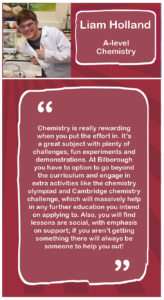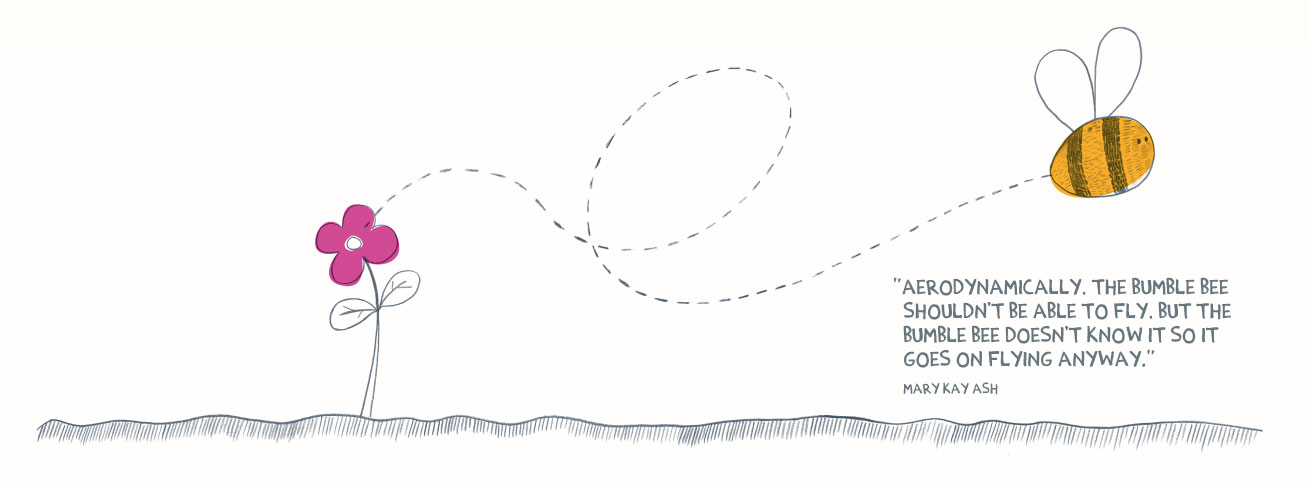Our Subject
CLICK IMAGE BELOW TO WATCH THE VIDEO

A Level Chemistry FAQs

Studying Chemistry at this level will take you some way to understanding how the universe works, in its basic form. You, for example, are almost entirely composed of just six different elements. At Bilborough you will learn fundamental theory and mathematical methods to help you understand the changes that take place in chemical reactions. Chemistry is also a practical subject, so your learning will be enhanced with lab work and demonstrations. Ours is an impressively resourced department, with state-of-the-art laboratories and five teaching staff with a dazzling thirteen degrees between them. Our students achieve impressive results every year with many achieving the very highest A* grade; up to 40% of students in the top performing classes! If you choose us you can rest assured you will only be taught by fully qualified and inspirational chemistry teachers with many years A-level teaching experience.
To study Chemistry at Bilborough, you will need to have a minimum of a grade 6 in GCSE Maths and a 5 in English Language. In addition you need to have a 6 in Core and Applied GCSE Double Science or a 6 in Chemistry GCSE if you have studied Triple Science. You must also have a strong work ethic both in and out of lessons.
BTEC Science Level 2 and Applied Science is not sufficient, but please consider our BTEC Science Level 3 courses.
Our links with HE
Because chemical reactions lie at the heart of how living systems function, an A-level in Chemistry is essential for reading Medicine, Veterinary Science and many other related degrees. In fact, it is probably the most in-demand A-level for university, with many admissions departments insisting upon an A grade for entry. Bilborough aims to go one further and secure you an A*: our track record shows this is a realistic expectation for our students.
Every year many of our chemists go on to study Medicine, Natural Science and other high-calibre courses at top universities, including Oxbridge. We like staying in touch with our alumni, who return to share their success with current students. Feedback from universities shows that Bilborough College students cope admirably with their degrees, and universities are keen to see more of our star chemists in the future.

